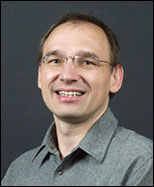Nashville startup InvisionHeart is a finalist for the Global Food and Health Innovation Challenge and will compete next week for a $1 million prize.
InvisionHeart was created by a group at Vanderbilt University, including biomedical engineering professor Franz Baudenbacher and cardiac anesthesiologist Susan Eagle.
InvisionHeart was chosen from among 220 submissions from nine countries. As a part of the Global South Summit, they will be among six teams presenting before a panel Nov. 11, and the winner will be announced Nov. 12.
The challenge is part of the second annual Global South Summit, a forum in Nashville that brings together executives and experts from around the world to concentrate on food and health issues. It is put together by the Cumberland Center, a research and business partnership that seeks to address food and health needs locally and internationally through inno

InvisionHeart’s wireless device allows health care providers, first responders and patients to record and send current tracings of the heart’s electrical activity via a smartphone or tablet directly to physicians for interpretation. Currently, doctors use special machines to analyze the data and print the results.
“We are effectively breaking down the barriers of the transmission of data as well as the bidirectional communication between practitioners in the field and cardiologists in (laboratories) for expedited patient care,” Eagle said in an interview with The Tennessean. “When you are dealing with patients having a heart attack, every minute that goes by means that cardiac tissue is dying.”
The smart health care platform can be expanded to monitor activity, posture, blood pressure, fluid status and cardiac stroke volume.
In April InvisionHeart won top honors at Vanderbilt’s 2013 TechVenture Challenge. The university initiative teaches students how to turn patented ideas developed by Vanderbilt faculty members into marketable products.
The company has raised $250,000 so far and is seeking an additional $750,000 to go through the Food and Drug Administration approval process and begin to commercialize the product.